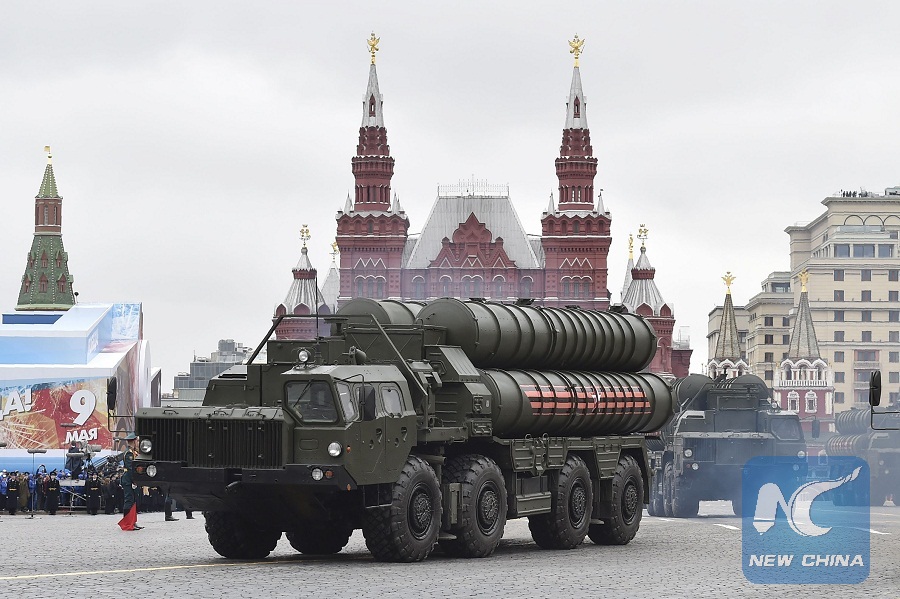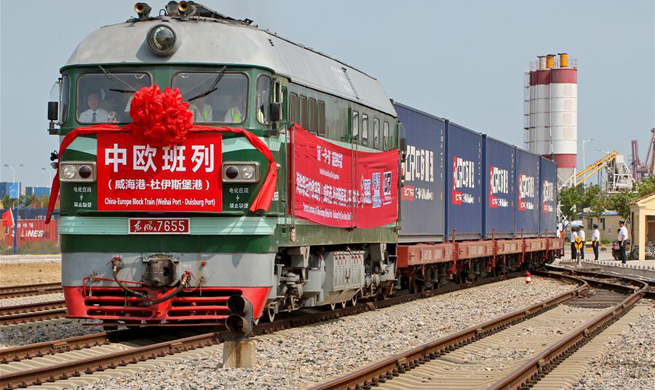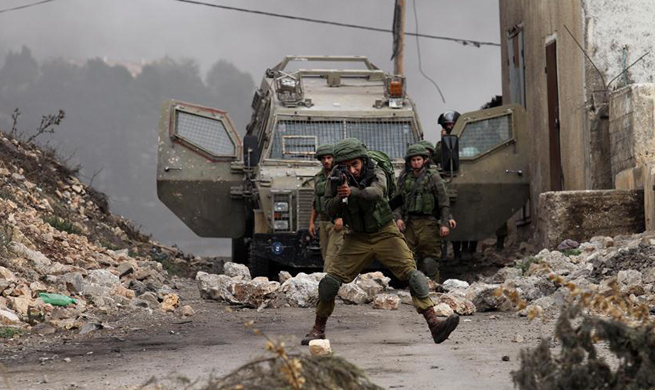
Turkey signs deal with Russia to buy S-400 missile defense system in its first major weapons purchase from Moscow. (AFP Photo)
by Burak Akinci
ANKARA, Sept. 15 (Xinhua) -- NATO member Turkey has signed an agreement with Russia on advanced S-400 missile defense system, a multi-billion deal that signals closer ties with Moscow amid tensions with its fellow allies.
Military experts, however, say that this powerful surface-to-air system is not compatible with those within NATO. Turkey's NATO allies have warned Ankara that all members are obligated to use weapons that can be integrated with each other's systems, and that Russian arms do not meet the criteria.
The U.S. Department of Defense expressed publicly its concerns, saying that "it's a good idea" for NATO allies to buy equipment that can be integrated in the alliance's system.
The preliminary agreement would see Turkey receiving two S-400 missile batteries from Russia within the next year, and two more subsequently, according to Turkish sources quoted by the local media.
The S-400 missile defense system is designed to detect, track and then destroy aircraft, drones or missiles. It's Russia's most advanced integrated air defense system, and can hit targets as far as 400 kilometers away.
No financial details have been disclosed from Ankara and Moscow and there is no schedule on a possible delivery of the system.
Turkey has been in NATO since the early 1950s, playing a key role as a frontline state bordering the Soviet Union. But ties with fellow members have been strained in recent years, with Turkish President Recep Tayyip Erdogan pursuing a more assertive and independent foreign policy as conflict engulfed neighboring Iraq and Syria.
Tensions with Washington mounted over U.S. support for Kurdish militants in Syria that Turkey considers terrorists, and the relationship with the European Union soured as the bloc pushed back against what it sees as Turkey's autocratic turn since the failed coup of July 2016 against President Erdogan's regime.
Just recently, Germany suspended arms sales to Turkey, the latest of a series of differences that led to a sharp degradation to their bilateral ties even though they are close economic partners.
"As a sovereign state, Turkey can naturally buy the S-400, but integration to the NATO system is another thing. It is simply not possible to do it unless Turkey is planning to deploy them as part of its national system, outside NATO's realm," explained to Xinhua Ozgur Eksi, defense analyst with C4 Defense, an online defense and military specialized news operator.
NATO does not ban purchases of military hardware from manufacturers outside the alliance, but it does discourage members from buying non-compatible equipment.
Turkey has bought in 1990s military helicopters from Russia that it used especially in the conflict against armed Kurdish rebels in southeastern provinces, at a time when the U.S. and other western powers banned arms sales to Ankara because of human right issues.
The dominant Turkish president swiftly dismissed western criticism by saying, "No one has the right to discuss the Turkish Republic's independence and independent decisions concerning its defense requirements."
Anti-western sentiment has risen dramatically in Turkey after the botched coup while relations with Russia have warmed, driven by the personal friendship between Erdogan and President Vladimir Putin.
"The S-400 is more sophisticated and advanced compared to the Patriot 3 that the U.S. is offering, but will Turkey intend to accept in her bedroom a stranger that can hear or see all her confidential?" said Eksi, also arguing that with a possible transfer of know-how, the Russian system could prove more costly than predicted.
The sides are currently sorting out various technical details and it could take about one year to finalize the project, according to Turkish sources.
Disagreements between Turkey, which has the second-largest army by personnel numbers in NATO, and the west have precipitated a rapprochement with Russia, despite of differences over the war in Syria.
Analysts underline the need for Turkey to diversify its military arsenal and say that with a single purchase Turkey is not committing itself away from NATO and from its responsibilities inside the alliance.
"Turkey is located at the gates of several armed conflicts in a volatile region and has justified concerns for its national security, and despite being a NATO member she is not obligated to buy from specific countries alone," professor Mustafa Kibaroglu, director of the Center for international security studies and strategic research at MEF University in Istanbul told CNN Turk news channel.
"Yes, this procurement has troubled NATO and the U.S., but it will be incorrect to say that it is a radical change in Turkey's foreign policy," he said.

















